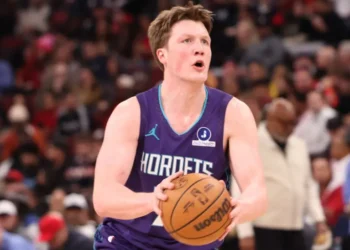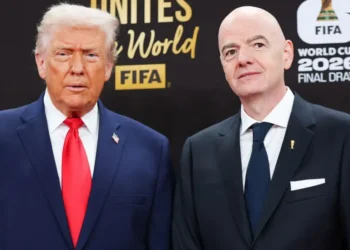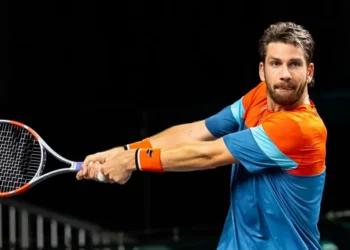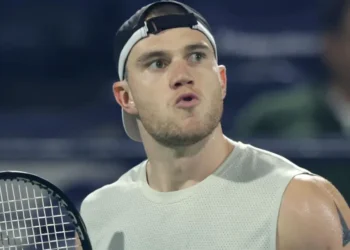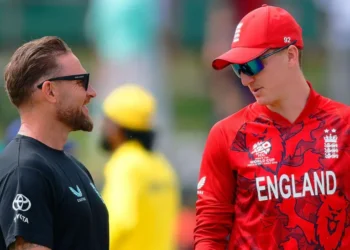The Big Fight: Players vs. The Four Majors
Tennis is changing. The world’s best players are standing up. They want more money. They want better benefits. They want a real voice.
Top stars like Jannik Sinner, Aryna Sabalenka, and Carlos Alcaraz are leading the charge. They’re demanding change from the four Grand Slam tournaments.
This isn’t just about greed. It’s about fairness.
What Are Players Asking For?
The Three Main Demands
1. More Prize Money
Players currently get only 16% of Grand Slam revenue. That’s shockingly low. They want this increased to 22% by 2030.
Think about that. The stars who fill stadiums get less than one-fifth of the money. The tournaments keep the rest.
Other professional sports pay athletes much better. NBA players get around 50% of league revenue. NFL players get about 48%.
Tennis players? Just 16%. That’s not fair.
2. Pension and Health Benefits
Right now, Grand Slams pay zero dollars into player pensions. Nothing. Not a single cent.
Players are demanding $12 million per year for benefits by 2030. This would cover:
- Retirement pensions
- Health insurance
- Maternity leave benefits
- Medical care for injuries
These are basic rights. Most professional athletes get them. Tennis players should too.
3. A Real Voice
Players want to create a new player council. They want input on decisions that affect their careers.
Currently, tournament officials make all the rules. Players just follow orders. That needs to change.
Who’s Leading This Movement?
Larry Scott Takes Charge
Former WTA CEO Larry Scott is guiding the players. He knows how tennis business works. He understands what players need.
Scott previously led the ATP tour. He was also the Pac-12 commissioner. He brings serious experience to the table.
The Star Power Behind It
The top 10 men and women are united. They sent two letters to Grand Slam officials. Both letters included handwritten signatures.
This shows commitment. These aren’t empty threats.
Players who signed include:
- Jannik Sinner (World No. 1)
- Aryna Sabalenka (Multiple Grand Slam winner)
- Carlos Alcaraz (French Open champion)
- Coco Gauff (US Open champion)
- Daniil Medvedev (Former US Open winner)
When the best players unite, tennis must listen.
The Current Money Situation
How Much Do Grand Slams Pay?
Let’s look at 2025 prize money:
Australian Open
- Total prize pool: $96.5 million AUD ($59 million USD)
- Singles champions: $3.5 million AUD each
- 11.56% increase from 2024
French Open
- Similar prize money structure
- Champions earned over $2 million each
Wimbledon
- Prize money increased 22% in two years
- Grew from $209 million (2022) to $254 million (2024)
US Open
- Champions receive $5 million each
- Record-breaking payouts in 2025
These numbers sound huge. But remember: players only get 16% of total revenue.
Where Does All The Money Go?
Grand Slam tournaments make billions. They sell:
- Television rights
- Sponsorship deals
- Ticket sales
- Merchandise
- Broadcast partnerships
The tournaments keep 84% of this money. Players who create the product get just 16%.
That’s the problem.
Why Players Deserve More
The Physical Cost
Tennis is brutal on the body. Players face:
- 11-month season
- Mandatory tournaments
- Constant travel
- Physical injuries
- Mental exhaustion
The calendar never stops. There’s barely time to rest.
Career Length is Short
Most tennis careers end by age 30. Some last longer. But physical prime years are limited.
Players need to earn enough during their peak. They must support themselves after retirement.
Without pensions from Grand Slams, many struggle financially after retiring.
No Say in Decisions
Tournament officials make rules without player input. They decide:
- Match schedules
- Tournament formats
- Prize money distribution
- Work conditions
Players have no vote. They’re told what to do. That’s not right.
Recent examples show the problem. The US Open added Sunday starts. Masters events now overlap for 12 days. These decisions hurt players. But players had zero input.
What Grand Slams Are Saying
The Official Response
Grand Slam officials claim they increase prize money every year. That’s technically true. But it’s not enough.
Wimbledon points to their 22% increase over two years. The Australian Open highlights their 11.56% boost.
But these increases don’t match revenue growth. The tournaments are making more money faster than they’re paying players.
The Stalling Tactic
Players report that negotiations are moving slowly. Grand Slam officials are dragging their feet.
This is a classic negotiation strategy. Wait them out. Players’ careers are short. Tournaments can wait forever.
But this approach is backbacking. Players are getting more organized. They’re not backing down.
The PTPA Problem
What is the PTPA?
The Professional Tennis Players Association (PTPA) exists. Novak Djokovic co-founded it. They filed a federal lawsuit against the tours.
The lawsuit alleges conspiracy and cartel-like conduct. It could change tennis completely.
Why Players Don’t Support It
Here’s the strange part. Almost no top players publicly back the PTPA. The lawsuit names zero top-50 players.
Djokovic himself walked away from the organization. Nick Kyrgios supports it, but he hasn’t played in months.
The PTPA seems disconnected from what players actually want.
A Better Approach
That’s why top players chose a different path. Instead of lawsuits, they’re using negotiation.
They’re meeting with officials. They’re making specific requests. They’re building consensus.
This approach seems smarter. It’s more likely to succeed.
What Happens Next?
The Critical Timeline
Players set a target date: 2030. That’s when they want the full changes implemented.
But negotiations need to progress now. Players can’t wait five years for talks to begin.
Possible Outcomes
Best Case Scenario: Grand Slams agree to player demands. Revenue share increases. Benefit funds get established. Player council gets created.
Middle Ground: Negotiations lead to compromise. Players get some improvements. Not everything they want, but significant progress.
Worst Case: Grand Slams refuse to budge. Players must decide: accept the status quo or take stronger action.
Could Players Strike?
It’s possible. If Grand Slams won’t negotiate fairly, players have one powerful weapon.
They could boycott tournaments. Imagine a Grand Slam without the top 20 players. It would be devastating.
But this is the nuclear option. Nobody wants this. Players want to play. Fans want to watch. Tournaments want stars.
Hopefully, negotiations prevent this scenario.
Why This Matters to Fans
Better Conditions Mean Better Tennis
When players are treated fairly, the sport improves. Happy, healthy players perform better.
Better benefits mean:
- Players can focus on tennis, not financial stress
- Longer careers for top stars
- Better competition at every tournament
- More stability in the sport
The Future of Tennis
This fight will shape tennis for decades. If players win fair treatment now, future generations benefit.
If they lose, tennis will continue undervaluing its athletes. That hurts everyone.
Comparing to Other Sports
Tennis vs. Other Professional Sports
Let’s be honest. Tennis treats players worse than most major sports.
NBA: Players get ~50% of revenue
NFL: Players get ~48% of revenue
NHL: Players get ~50% of revenue
Tennis: Players get 16% of revenue
The difference is shocking. Tennis players are elite athletes. They deserve elite treatment.
Why the Difference?
Tennis has a unique structure. Tournaments are independent. There’s no single league owner.
But that shouldn’t matter. Players create the value. They should share in the profits.
The Role of Top Players
Why Stars Must Lead
Lower-ranked players need support too. But they don’t have leverage.
Top 10 players have bargaining power. Without them, Grand Slams lose money. Television ratings drop. Sponsors get nervous.
That’s why Sinner, Alcaraz, and Sabalenka leading is crucial.
Speaking for Everyone
Coco Gauff emphasized this point. She said the push is for all players, not just top-ranked ones.
Better revenue sharing helps everyone. The benefit fund helps all players. The player council represents all voices.
This is about the entire tennis community.
Key Issues in Detail
Prize Money Distribution
Current prize money structure:
- Winners get millions
- First-round losers get thousands
- Middle-ranked players struggle financially
A bigger revenue share would increase the entire prize pool. More money at every level.
Health and Medical Care
Tennis injuries are common. Players need:
- Quality medical treatment
- Rehabilitation support
- Long-term health coverage
Grand Slams currently provide none of this. Players pay out of pocket.
Maternity Benefits
Female players face unique challenges. Pregnancy can end careers if there’s no support.
Maternity benefits would include:
- Protected rankings during pregnancy
- Financial support during leave
- Help returning to competition
Retirement Planning
Most players can’t afford financial advisors. They don’t get pension plans. Many retire broke.
A proper pension fund would change this. Players could retire with dignity.
What Fans Can Do
Support Player Rights
Fans have power. When fans support player demands, tournaments listen.
Talk about these issues. Share information on social media. Let Grand Slams know you support fair treatment.
Understand the Bigger Picture
This isn’t about millionaires wanting more money. It’s about fair compensation.
Tennis generates billions. Players deserve their share. They’re the product. They’re the reason fans buy tickets.
The Bottom Line
Tennis players are standing up for themselves. They want fair pay. They want basic benefits. They want a voice.
These demands are reasonable. They’re not asking for too much. They’re asking for what’s right.
Grand Slam tournaments have massive profits. They can afford to treat players better. They should.
The next few months will be critical. Negotiations will determine tennis’s future.
Players deserve better. The sport deserves better. Fans deserve better.
Let’s hope the four majors do the right thing.
Frequently Asked Questions
Q: How much do Grand Slam winners make?
A: In 2025, singles champions earn between $2 million and $5 million per tournament, depending on the event.
Q: What percentage of revenue do tennis players receive?
A: Currently just 16% of Grand Slam revenue goes to players. They want this increased to 22% by 2030.
Q: Do Grand Slams pay into player pensions?
A: No. Grand Slams currently contribute zero dollars to player retirement benefits.
Q: Who is leading the player movement?
A: Former WTA CEO Larry Scott is advising the top-ranked players in their negotiations with Grand Slam officials.
Q: Could players boycott Grand Slams?
A: It’s possible if negotiations fail, but both sides want to avoid this extreme measure.
Q: When will changes happen?
Players are targeting 2030 for full implementation, but negotiations are ongoing now.
The fight continues. Tennis is changing. And it’s about time. For more information visit: Net Sports 247.

